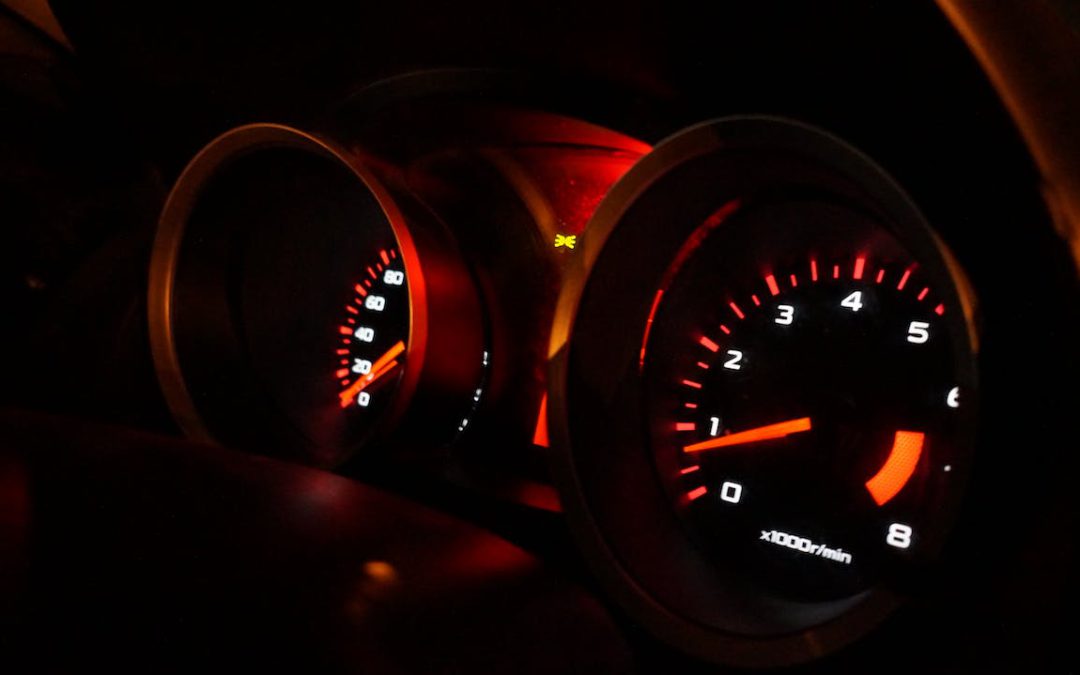Automotive computer reprogramming, involving ECU/ECM software modification, directly impacts vehicle emissions. With emissions being a significant contributor to air pollution and climate change, the role of reprogramming in reducing harmful outputs is crucial. The process utilizes specialized computer tools and chassis dynamometers for random road tests to record input data under varying conditions. This procedure aims to alter the code structure and signals within the ECU/ECM, ultimately impacting emission control systems like SC03 and Federal Test Procedure. By doing so, it seeks to improve vehicle performance while minimizing environmental impact.
Understanding The Role Of ECU/ECM In Vehicle Emissions
Controlling Engine Parameters
The engine control unit (ECU) or engine control module (ECM) serves as the brain of a vehicle, regulating critical functions such as fuel injection and ignition timing. By monitoring these aspects, it ensures that the engine operates at its most efficient level while also managing emission control systems. For instance, when an engine runs too rich or too lean, the ECU/ECM intervenes to adjust the air-fuel mixture for optimal combustion and reduced emissions.
The ECU/ECM continuously evaluates sensor data to make real-time adjustments that impact emissions. It can modify fuel delivery rates, alter ignition timing, and regulate exhaust gas recirculation to minimize harmful pollutants released into the environment. This proactive approach not only enhances performance but also reduces the environmental impact of vehicle emissions.
Impact On Pollutant Levels
One significant aspect where the ECU/ECM influences vehicle emissions is through its ability to manage catalytic converter efficiency. By optimizing fuel-air ratios and controlling combustion processes, it maximizes catalytic converter effectiveness in reducing harmful pollutants like nitrogen oxides (NOx), carbon monoxide (CO), and hydrocarbons (HC). In essence, automotive computer re-programming directly affects how efficiently a vehicle’s emission control systems operate, ultimately impacting pollutant levels emitted into the atmosphere.
- The ECU/ECM regulates crucial engine functions such as fuel injection and ignition timing.
- Real-time adjustments by automotive computer re-programming help optimize combustion for reduced emissions.
- Computerized management significantly impacts catalytic converter efficiency in reducing harmful pollutants.
Benefits Of Reprogramming For Emission Reduction
Optimized Engine Performance
Reprogramming the ECU/ECM can significantly impact car emissions by improving fuel efficiency. This means that the engine uses fuel more effectively, which in turn reduces harmful emissions. For example, adjusting the air-fuel ratio through reprogramming can lead to better combustion and lower emission levels.
When a vehicle’s software is reprogrammed, it allows for customization of various engine parameters such as ignition timing and air-to-fuel ratios. These adjustments are crucial in ensuring that the engine operates at its most efficient level, resulting in reduced emissions. By fine-tuning these settings, vehicles can comply with specific emission regulations while maintaining optimal performance.
Implementation Of Advanced Emission Control Technologies
Upgrading the software through reprogramming enables advanced emission control technologies to be effectively implemented within a vehicle’s system. For instance, modern vehicles are equipped with catalytic converters and oxygen sensors designed to reduce harmful exhaust gases. By reprogramming the ECU, these components can work more efficiently together to further minimize emissions.
- Improved fuel efficiency leads to reduced emissions.
- Customization of engine parameters ensures compliance with emission regulations.
- Reprogramming facilitates effective implementation of advanced emission control technologies.
The Necessity Of Regular ECU Updates For Emission Control
Essential Updates
Automotive computer re-programming, particularly updating the Engine Control Unit (ECU), is crucial for maintaining optimal emission control. These updates often integrate advancements in emission control algorithms and strategies. Manufacturers release these updates to address potential issues or enhance emission performance based on real-world data. For instance, an update may optimize fuel injection timing to reduce harmful emissions during a random cycle.
Regularly keeping the ECU/ECM up-to-date ensures compliance with changing emission standards. This means that vehicles can continue to meet stringent regulations as they evolve over time. By integrating new information into the ECU, such as improved control parameters or refined sensor calibration, manufacturers enable cars to adapt and perform more efficiently within varying environmental conditions.
Real-World Impact
The impact of automotive computer re-programming extends beyond mere technical adjustments; it directly influences how vehicles contribute to environmental preservation. For example, an update might refine the management of exhaust gas recirculation (EGR) systems or fine-tune air-fuel mixture ratios for better combustion efficiency. These enhancements translate into tangible reductions in harmful emissions like nitrogen oxides (NOx) and particulate matter.
Moreover, by ensuring that vehicles adhere to updated emission standards through regular updates, automotive computer re-programming actively contributes towards mitigating air pollution and promoting cleaner air quality in communities.

Optimizing Engine Performance To Reduce Emissions
Fine-Tuning The ECU/ECM
Reprogramming the automotive computer can have a significant impact on car emissions. By adjusting the engine control unit (ECU) or engine control module (ECM), it’s possible to optimize engine combustion, resulting in reduced emissions. For instance, tweaking the air-fuel mixture ratios and ignition timing through reprogramming can lead to improved efficiency and lower pollutant output.
Reprogramming can help achieve a balance between power output and emission reduction. This means that by fine-tuning the parameters within the engine control system, it’s feasible to enhance performance while simultaneously minimizing harmful exhaust emissions.
Achieving Balance
The process of re-programming is crucial for achieving an optimal balance between engine power and reduced emissions. Through this optimization, vehicle owners can ensure that their cars meet stringent emission standards without compromising on performance. For example, altering parameters related to engine torque and speed via reprogramming enables vehicles to operate more efficiently while emitting fewer pollutants during drive tests.
Balancing Fuel Efficiency And Emission Output
Striking A Balance
Reprogramming automotive computers offers the flexibility to make adjustments that strike a balance between fuel efficiency and emission reduction. By optimizing engine parameters, it’s possible to achieve improved mileage without compromising on emission control. For instance, adjusting the air-fuel mixture or ignition timing can lead to more efficient fuel consumption while simultaneously reducing harmful emissions.
Achieving the right balance is crucial in contributing to a more sustainable and eco-friendly driving experience. When reprogramming focuses on both aspects equally, it ensures that vehicles not only consume less fuel but also emit fewer pollutants into the atmosphere. This helps in meeting environmental regulations while enhancing overall performance.
Impact On Sustainability
The impact of automotive computer re-programming goes beyond just improving individual vehicle performance; it plays a significant role in creating a more sustainable transportation ecosystem. For example, by fine-tuning specific fuel consumption through reprogramming, cars can operate using alternative fuels such as biofuels or even electricity, thus further reducing their carbon dioxide emissions.
Furthermore, this technology enables simulation work to evaluate different scenarios for optimizing energy mass consumption within vehicles. The ability to adjust these parameters allows for an ongoing effort towards achieving better fuel economy and reduced emissions across various types of fuels used in automobiles.
Potential Downsides Of Engine Reprogramming On Emissions
Increased Emissions
Reprogramming the engine control unit (ECU) without proper knowledge or expertise can lead to increased emissions. When the settings are adjusted incorrectly, it can disrupt the air-fuel mixture, causing inefficient combustion and higher emission levels. For example, if the fuel injection timing is altered haphazardly, it may result in incomplete combustion and an increase in harmful pollutants like nitrogen oxides (NOx) and hydrocarbons.
Reprogramming errors can also cause engine damage, leading to a decline in emission performance. If the reprogrammed parameters don’t align with the manufacturer’s specifications, it could strain various engine components, resulting in suboptimal functioning and higher emissions. This emphasizes the critical need for professional assistance when altering ECU settings to maintain emission compliance.
Non-Compliance With Regulations
Modifying emission control systems without adequate understanding or expertise poses a significant risk of non-compliance with environmental regulations. For instance, tampering with catalytic converters or exhaust gas recirculation (EGR) systems during reprogramming might lead to emissions surpassing legal limits set by environmental authorities. This not only contributes to environmental pollution but also exposes vehicle owners to potential legal repercussions for violating emission standards.
It’s crucial for vehicle owners considering engine reprogramming for performance enhancement to recognize that seeking professional assistance is paramount. Professional tuners possess comprehensive knowledge of emission control systems and regulatory requirements, ensuring that any modifications made comply with legal standards while maintaining optimal engine performance.
Addressing Security Concerns In Reprogrammed Emission Systems
Reliable Reprogramming Methods
Using reliable and secure methods is crucial. This helps prevent unauthorized access or tampering that could lead to increased emissions. Manufacturers and suppliers must ensure that the reprogramming process follows strict security protocols to safeguard against potential hacking or malicious modifications.
Reprogramming safety measures are essential for protecting the integrity of the vehicle’s emission system. By implementing robust network structures and utilizing secure black box technology, manufacturers can minimize the risk of unauthorized alterations that may impact emissions levels.
Regular Software Updates
Regular software updates play a vital role in maintaining the security of reprogrammed emission systems. These updates often include critical security patches designed to address vulnerabilities that could be exploited by external parties seeking to manipulate emissions outputs.
- Implementing robust network structures
- Utilizing secure black box technology
- Regular software updates with security patches
The Future Of Automotive Software And Emission Standards
Advancements In Automotive Software
Automakers are continually enhancing automotive software to meet stricter emission standards. By utilizing artificial intelligence and machine learning algorithms, they can develop more efficient emission control strategies. For example, through the use of advanced software, car makers can optimize engine performance to reduce harmful emissions during different driving conditions.
The integration of these technologies allows for real-time monitoring and optimization of emission performance, contributing to a significant reduction in vehicle emissions. With increasing connectivity and data exchange capabilities, vehicles can undergo continuous adjustments based on various environmental factors and driving conditions.
Real-Time Monitoring And Optimization
The future of automotive software will enable vehicles to adapt their emission control systems dynamically in response to road tests and driving simulations. This means that cars equipped with advanced software will be able to adjust their emission levels based on factors such as vehicle speed, traffic conditions, or even individual driving habits.
Conclusion On Reprogramming And Its Environmental Impact
You’ve learned about the significant role automotive computer reprogramming plays in reducing car emissions. By optimizing engine performance, balancing fuel efficiency, and addressing security concerns, reprogramming the ECU/ECM can lead to substantial environmental benefits. However, it’s essential to consider potential downsides and the necessity of regular updates for emission control. As automotive software continues to advance, the future holds promising opportunities for further improving emission standards through reprogramming.
Now that you understand the impact of automotive computer reprogramming on car emissions, consider exploring professional reprogramming services for your vehicle to contribute to a greener environment. Stay informed about advancements in automotive software and emission standards to make environmentally conscious decisions regarding your vehicle’s performance and emissions. Embracing these changes can lead to a positive impact on both your driving experience and the environment.
Are You Seeking Expertise In Automotive Computer Re-Programming?
Discover the excellence of autoTECH Blackhawk in the realm of automotive computer re-programming. What makes us the go-to choice for your vehicle’s computer re-programming needs? Our standout feature is our unwavering dedication to building robust relationships with our clients, an essential element in the specialized field of automotive computer re-programming. This dedication forms the foundation of our personalized approach, aligning our services with your unique requirements and goals for your vehicle’s performance.
Whether you’re looking to boost the efficiency of your everyday car, integrate advanced computerized features into your new vehicle, ensure your cherished car remains in top-notch condition, or educate your family on the nuances of automotive computer systems and their maintenance, autoTECH Blackhawk is committed to fulfilling your automotive ambitions. We take great pride in our industry-leading 3-year/36,000-mile warranty and our adherence to using only Original Equipment and manufacturer-recommended components, guaranteeing your utmost satisfaction with our computer re-programming services. Feel free to reach out to our approachable team today to arrange a convenient and contactless consultation for your vehicle’s computer re-programming needs!


